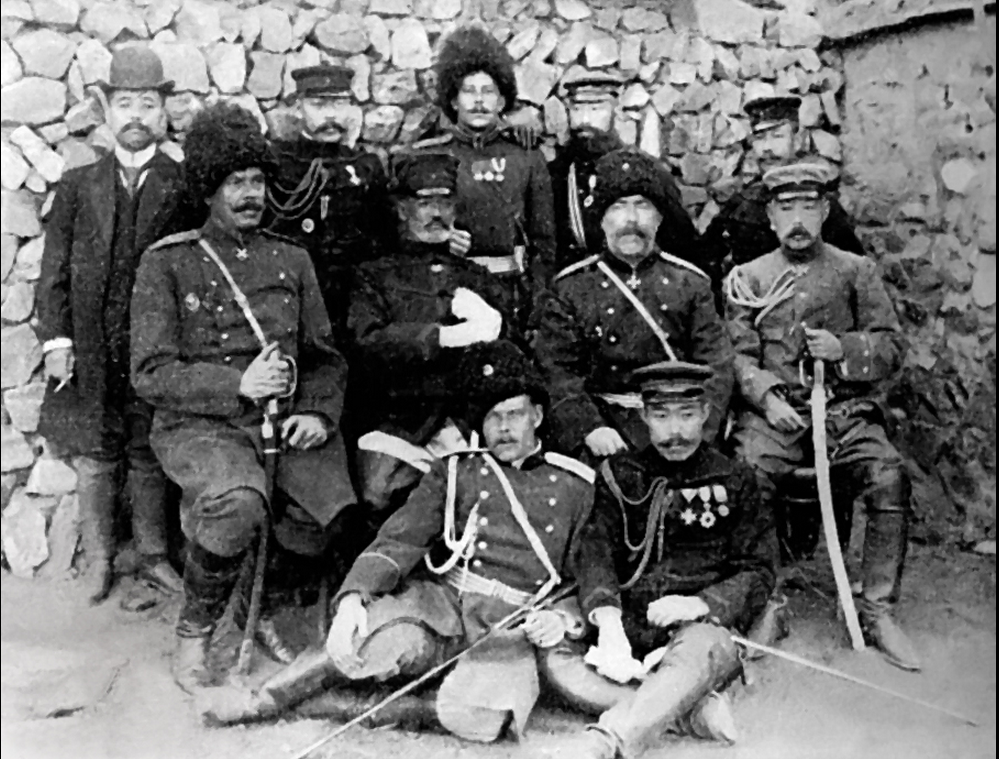Anti-Japanism, a form of racism manifested with
intense prejudice as in an attitude or policy of hatred and hostility toward
the Japanese race, became so apparent when U.S. and other Western powers envisaged
colonization of Japan more than a century ago. The World War II could be so defined as the war to annihilate the Jews and the Japanese race when
we review WWII in view of such a statement as the most famous American hero, Mr. Charles Lindberg made in his diary “What
the German has done to the Jew in Europe, we are doing to the Jap in the
Pacific. As Germans have defiled themselves by dumping the ashes of human
beings into this pit, we have defiled ourselves by bulldozing bodies into
shallow, unmarked tropical graves. A long line of such incidents parades before
my mind: the story of our Marines firing on unarmed Japanese survivors who
swarm ashore on the beach at Midway; the accounts of our machine-gunning
prisoners on a Hollandia airstrip; of the Australians pushing captured Japanese
soldiers out of the transport planes which were taking them south over the New
Guinea mountains; (“The Aussies reported them as committing hara-kiri or
‘resisting’”);------.
After the end of the Greater East
Asia War (also called “the Pacific War” in the U.S., etc.), General Douglas
MacArthur ignored the Potsdam Declaration and also international laws. Instead,
he rampantly issued his own decrees much to the surprise of the Government of the Imperial
Japan. MacArthur’s motive was to whitewash almost all historical events that led to the
war between Japan and U.S., so as to revise the history. Dr. Watanabe Shoichi, Professor Emeritus at Sophia
University, Tokyo claims that General Douglas MacArthur was the most extreme
revisionist when viewed from where Japan stood during the U.S. occupation of
Japan.
In other words, MacArthur’s drive for anti-Japanism
culminated when he imposed the current Constitution of Japan and also the
outcome of the Tokyo Trials on Japan along with a number of forced changes made
to Japan just because Japan lost the war largely dictated by its security, which
Dr. Watanabe has stated on the number of occasions.
 |
U.S. Forces’ Policy of Not Taking
Japanese POWs
Unlike
the Great Imperial Japanese Forces took the surrendering enemy soldiers
prisoners of war, U.S. Forces had a policy of not taking Japanese POWs and of
conniving mistreatment of Japanese POWs, obviously refusing to observe what’s
required in the Geneva Convention.
By
slaughtering the surrendered or surrendering Japanese soldiers, U.S. Forces had
achieved objectives of reducing the burdens to treat them as POWs and at the
same time of eliminating the slightest possibility that U. S. Forces might be
accused of war crimes committed against them.
U.S.
and its allies killed every surrendering or surrendered Japanese soldier
whenever possible, except when they filmed the scenes of capturing the
surrendering Japanese soldiers to show that they had humanely
treated the disarmed soldiers and civilians, so as to strengthen the image that
U.S. fought for freedom and justice. They showed no mercy towards Japanese
soldiers, whether they were the surrendering ones or not, with the firm
conviction that Japanese were less than wild animals.
Just
because U.S. won the war, U.S. acted like “the Almighty without a single flaw”
under the guise of preserving justice and observing the international laws by
opening the Tokyo Trials, in which victors accused losers of war crimes, who
had in fact honestly observed the international laws with all their capacity,
hoping that the world would understand Japan’s fight for freedom of the Asian
race brutally
enslaved by the white ruled nations for centuries.
Mr.
Charles Lindberg’s statement supports the above. He states in his diary “Our men
think nothing of shooting a Japanese prisoner or a soldier attempting to
surrender. They treat the Jap with less respect than they would give to an
animal, and these acts are condoned by almost everyone. We claim to be fighting
for civilization, but the more I see of this war in the Pacific the less right
I think we have to claim to be civilized.”


































